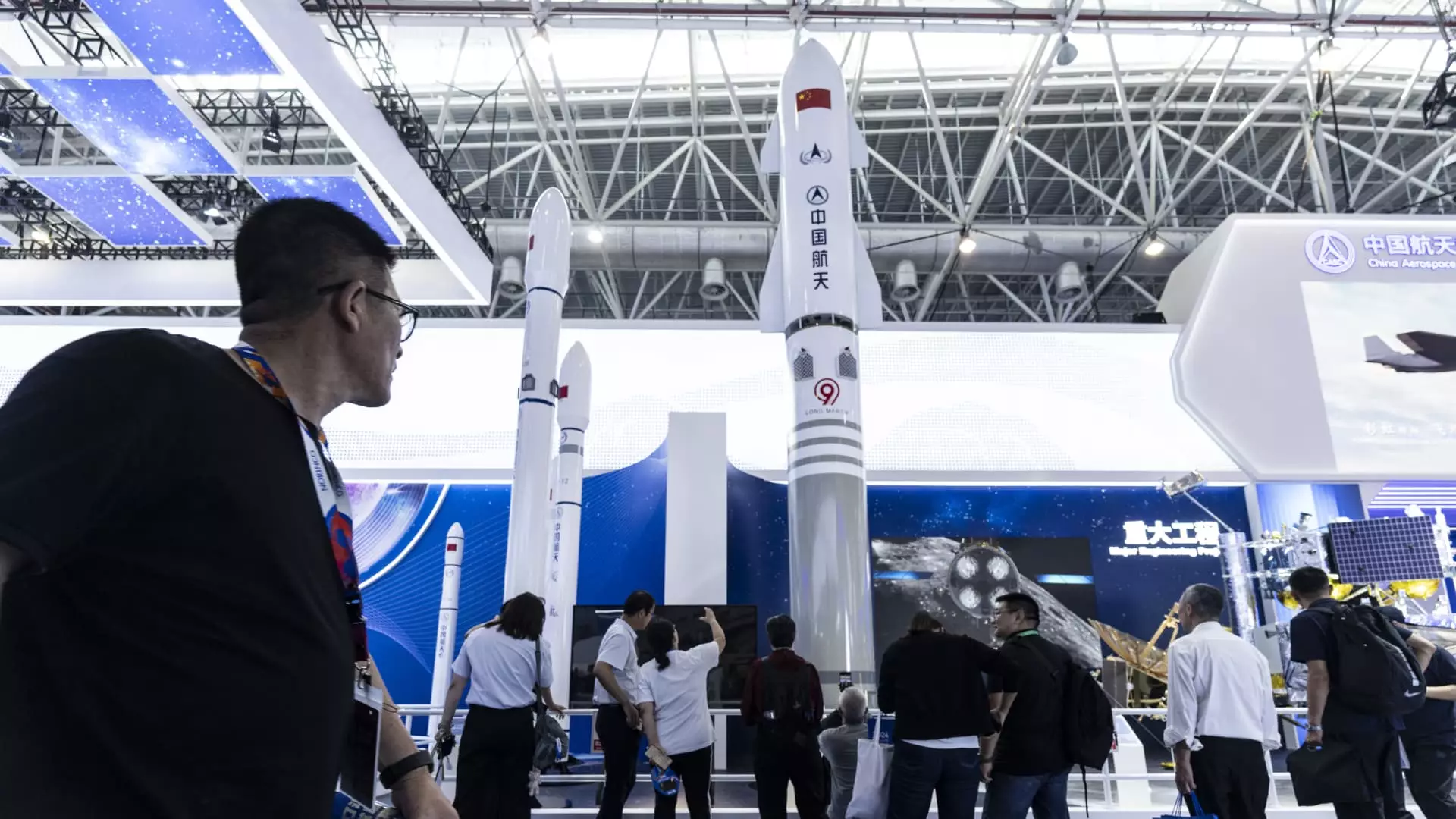The rapid development of satellite internet services has triggered an intense race among global powers, pushing China to ramp up its efforts to establish a significant foothold in this burgeoning market. With SpaceX’s Starlink leading the charge, boasting nearly 7,000 satellites and serving around 5 million customers in over 100 countries, China’s ambition to create a comparable network raises questions about both technological competition and geopolitical dynamics. As the world becomes increasingly interconnected, the struggle to dominate satellite-based internet services is not merely about market share; it reflects broader strategic interests and ideological battles.
China aims to deploy a constellation of approximately 38,000 satellites across its three major low Earth orbit (LEO) internet projects: Qianfan, Guo Wang, and Honghu-3. This goal illustrates the scale of China’s ambitions and its recognition of the need to rival not only Starlink but also European competitors like Eutelsat OneWeb, which has successfully launched over 630 satellites, and Amazon’s Project Kuiper, which plans more than 3,000 satellites. As the competition intensifies, the question arises: why is China investing heavily in satellite internet when faced with such formidable rivals?
The insights from experts like Steve Feldstein at the Carnegie Endowment for International Peace shed light on a critical dimension of this competition. Starlink has proven effective in delivering uncensored internet access to remote corners of the globe. For China, this capability represents a significant threat to its extensive censorship apparatus. The potential for Starlink to bypass governmental control over information access compels China to develop its own solutions, not merely for market competition but as a response to an ideological challenge. In this context, the race for a satellite internet service is also a race to safeguard state narratives and control.
While China’s satellite internet service may not be the top choice for Western countries like the U.S., Canada, and many European nations, there remain substantial markets around the world where China could establish a presence. Regions such as Russia, Afghanistan, parts of Syria, and significant areas in Africa represent potential growth areas for Chinese satellite internet offerings. As Juliana Suess from the German Institute for International and Security Affairs indicates, China’s existing telecommunications infrastructure, notably laid down by Huawei in many African nations, creates a strategic advantage. By extending satellite services in these areas, China’s approach to connectivity could be tailored to meet local demands, fostering partnerships based on different governance and regulatory frameworks.
Beyond commercial interests, the importance of satellite internet as a national security asset cannot be overstated. The ongoing conflict in Ukraine has highlighted the strategic advantages conferred by satellite communications, particularly in the realm of drone warfare and modern military operations. Satellites provide critical infrastructure that remains functional even when ground-based systems are compromised or disabled during conflicts. The prospect of utilizing satellite constellations for military applications enhances China’s motivation to develop its capabilities in this domain, reflecting a broader trend where connectivity and military prowess converge.
China’s race against established players like SpaceX showcases the complexities of the global satellite internet landscape. It is driven by technological ambitions, geopolitical strategies, and national security considerations, with each player seeking to assert influence over the future of connectivity. As countries grapple with the implications of uncensored access to information and the military advantages of satellite communications, this competition will likely intensify. The outcome remains uncertain, but one thing is clear: the quest for dominance in satellite internet services will shape the dynamics of global power for years to come. As China embarks on this ambitious journey, the world will be watching closely to see how it navigates this uncharted territory.

Leave a Reply